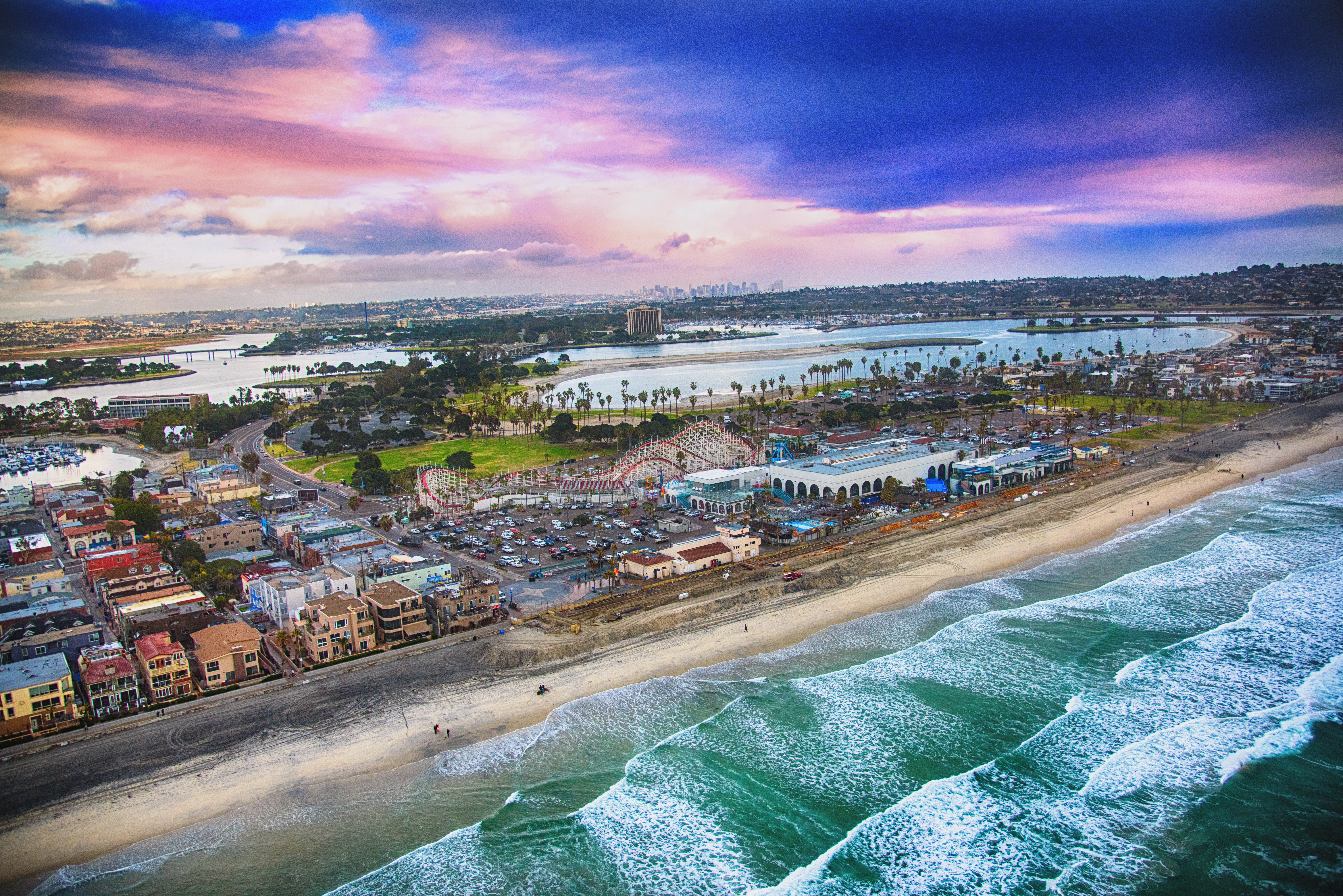Members of the San Diego City Council voted to approve a $4-million, 55-year loan agreement for a five-story affordable housing project in Pacific Beach that will exceed the 50-year-old 30-foot Coastal Height Limit.
Two council members voted this week against the funding — which is part of city's Bridge to Home program — after a contentious discussion during their Tuesday meeting.
Rose Creek Village is the only Bridge to Home affordable housing project within San Diego’s coastal communities. During the city council vote, six of the eight council members present voted in favor of the loan. The same day, council members, acting as the city's housing authority, also voted to approve an additional $2 million loan from the San Diego Housing Commission.
Vicky Jones, the chief of staff for LaCava's office, further emphasized that the council did not vote on the project itself, only the city funding. She said the project is "ministerial and requires no further city approvals," although it is not clear if the developers still have other steps to take before construction can begin.
Get top local stories in San Diego delivered to you every morning. >Sign up for NBC San Diego's News Headlines newsletter.
“This is, and I'll be blunt, the most egregious bait-and-switch that I've heard in my long private career in housing,” said Council President Pro Tem Joe LaCava, who represents District 1, which includes Pacific Beach.
The project, referred to as the Rose Creek Village Affordable Housing Project, is slated to replace an existing building at 2662 Garnet Ave. The new building on a 0.4-acre lot will become 60 apartments, with 59 of them designated for low-income residents. Eighteen of the 59 will be set aside for people experiencing homelessness, including veterans. The project will feature on-site amenities like laundry, offices and EV chargers.

According to the presentation shared in a council meeting, the location was chosen, in part, because it's “in a state-defined highest resource area, adjacent to the Balboa Avenue transit station and the Blue Line trolley, and located in a mixed-use transit priority area,” said the presenter with the city’s economic development department.
Local
LaCava claimed that, early on in the discussion for the project, community members were deceived about the height of the building. At five stories, it will surpass the 30-foot coastal height limit set by Proposition D in 1972. According to the presentation, the project is allowed to bypass Prop D because it qualifies under the Density Bonus Law for an incentive to exceed the coastal height limit "development standard" “since it is a 100% affordable housing project.”
“This question in front of us is not about affordable housing nor about affordable housing in Pacific Beach," LaCava said. "I’m in opposition to this method of busting Prop D and the misrepresentation given to my constituents and voters."
In the council meeting, one of the project’s developers was given the opportunity to defend it.
“I was actually one of the presenters to the planning group back in November of 2021,” said Ted Miyahara, the executive director of the San Diego Community Housing Corporation. “I think some of the things that have been said today are definitely mischaracterized.”
Miyahara continued: "We in no way, shape or form suggested that we were only building a three-story building. We went as far as providing the community with a PowerPoint, and in that PowerPoint there were no renderings at all.”
Councilmember Raul Campillo, the only other member to vote against the city loan alongside LaCava, questioned Miyahara.
“So, you had a presentation to the planning group and had no drawings or any renderings of what you were planning?” Campillo asked.
Miyahara said that there were slides and a site plan in the PowerPoint
Community members who spoke against the project shared that they are concerned not only about the building's height but also about adding more people to an already heavily-populated area. J. Kulavis, who works and lives nearby, said that Garnet Avenue is “ a dense area, especially with no parking.”
Regardless, Kulavis said, he does see the need for more affordable homes.
“I’ve lived here for 15 years, and my rent has doubled in that time, so I completely understand,” Kulavis said. “Nobody can live in P.B. anymore. All my friends who used to live here had to move away. I mean, I don’t know if it’s the best location, but we need something, and we got to put it somewhere.”
The overall project is expected to cost $40.5 million and take two years to complete.



